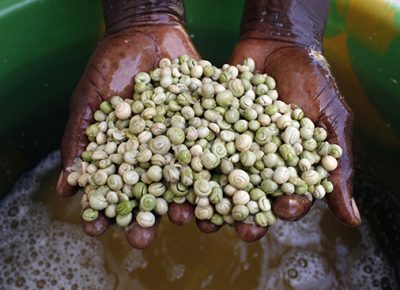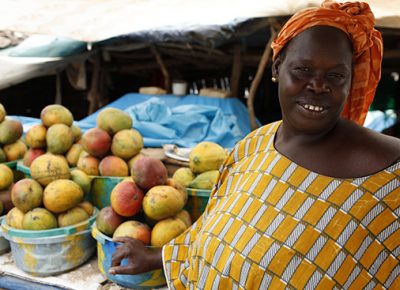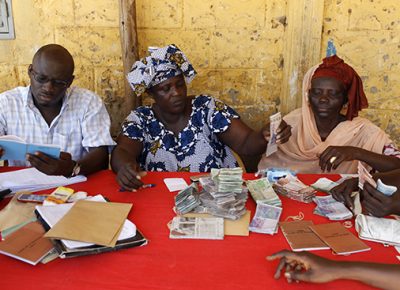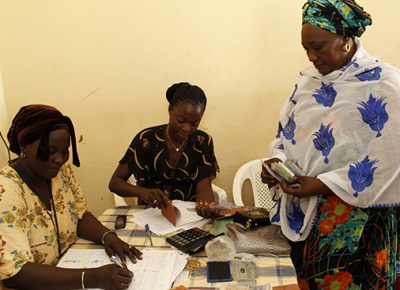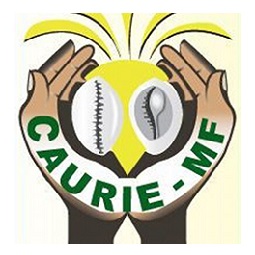
Senegal

Funding granted
Loan of €2.2M *
(equivalent in local currency)
Foundation partner
since 2009
*Outstanding amount at grant value
Partner website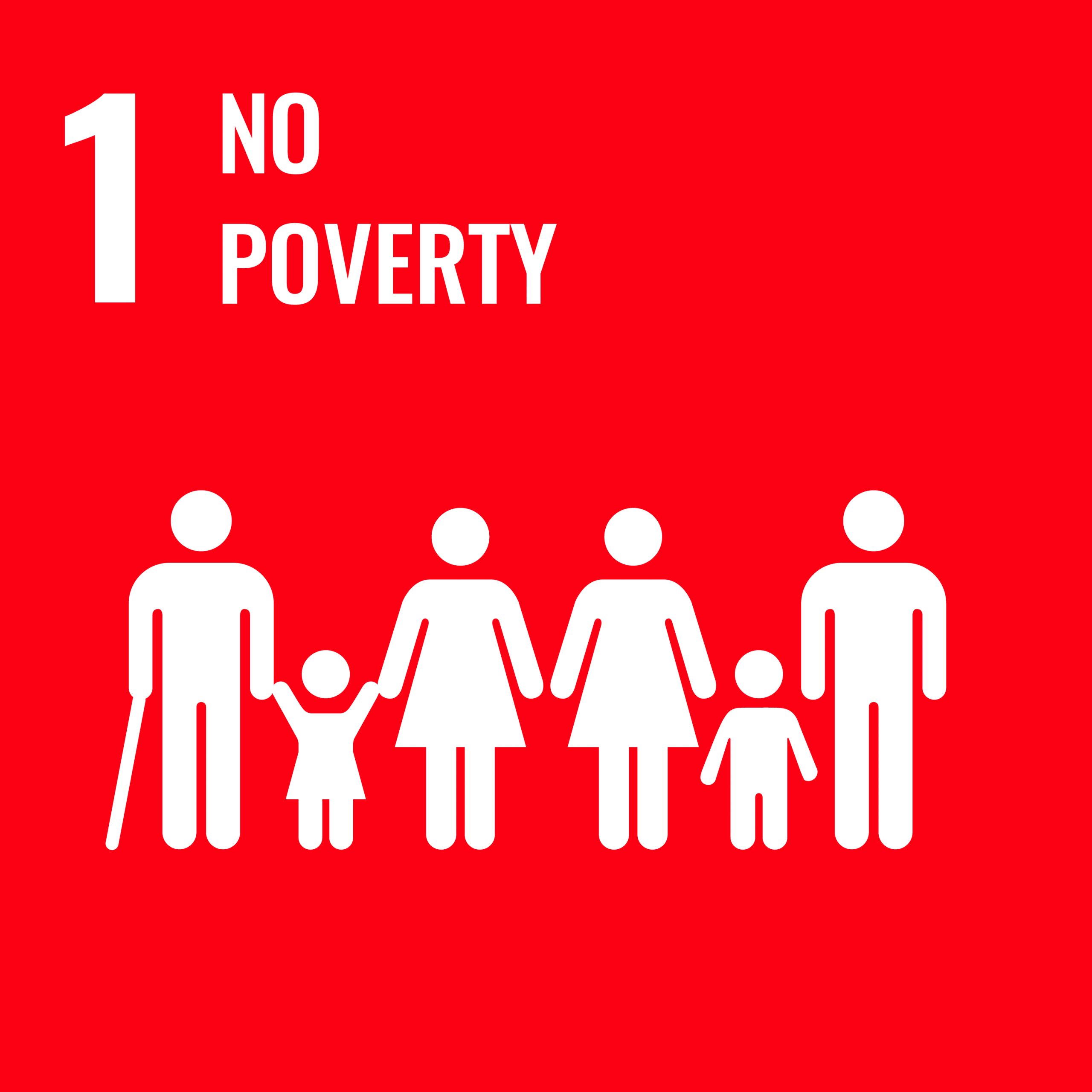

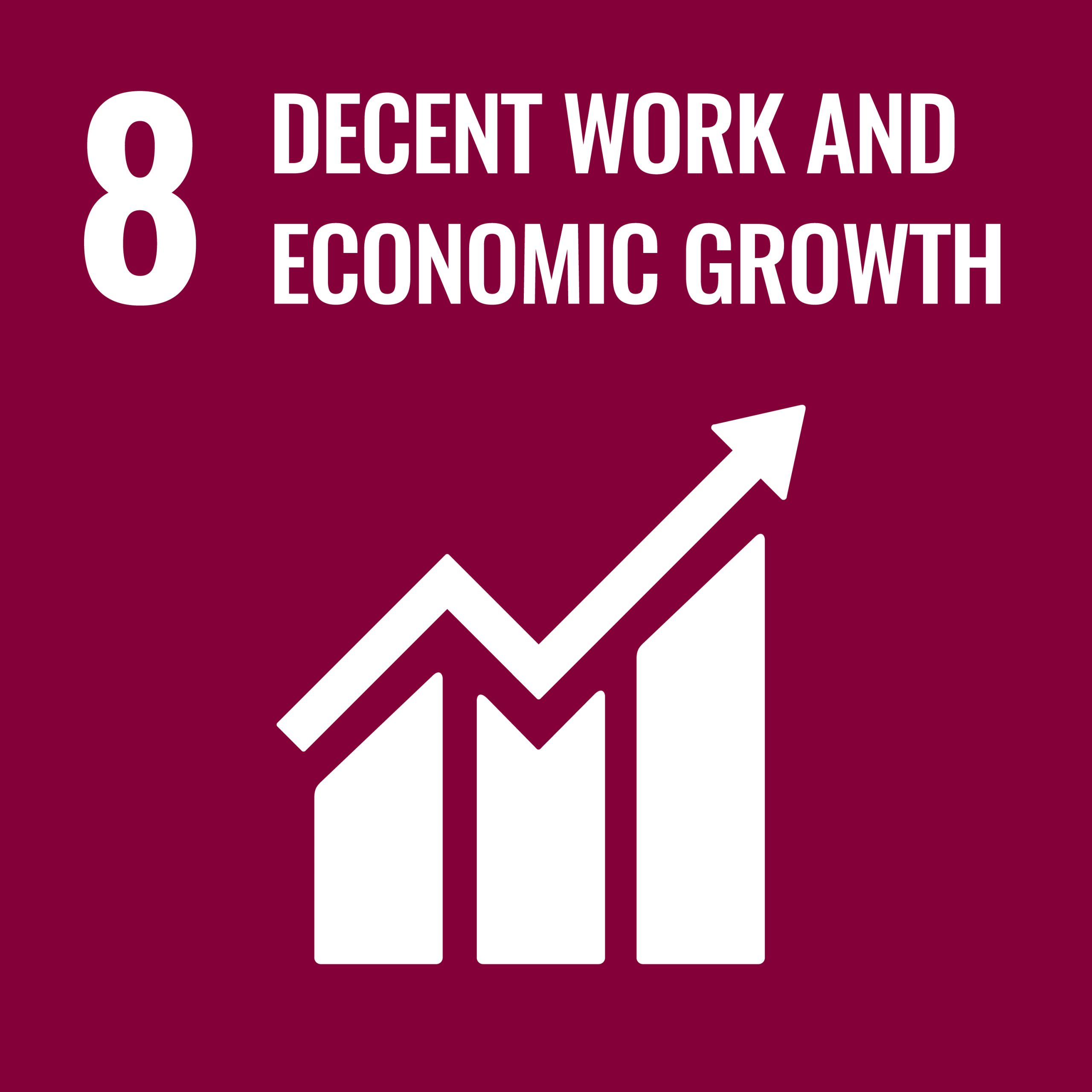
Context:
The informal sector continues to represent a significant share of GDP. Senegal is among the least developed countries (LDCs) according to the UN, with 50% of its population living below the poverty line. Unemployment affects a large part of the population, especially young people.
The institution :
The Coopérative Autonome pour le Renforcement des Initiatives Economiques par la MicroFinance (CAURIE-MF) was created in 2005 by Relief Services (CRS) and CARITAS Senegal. Over 60% of CAURIE-MF’s activity develops in rural areas and in 13 administrative regions of Senegal.
Impact:
CAURIE-MF contributed sustainably to the economic and social promotion of poor microentrepreneurs, mainly women, by offering them appropriate financial products and services.
News
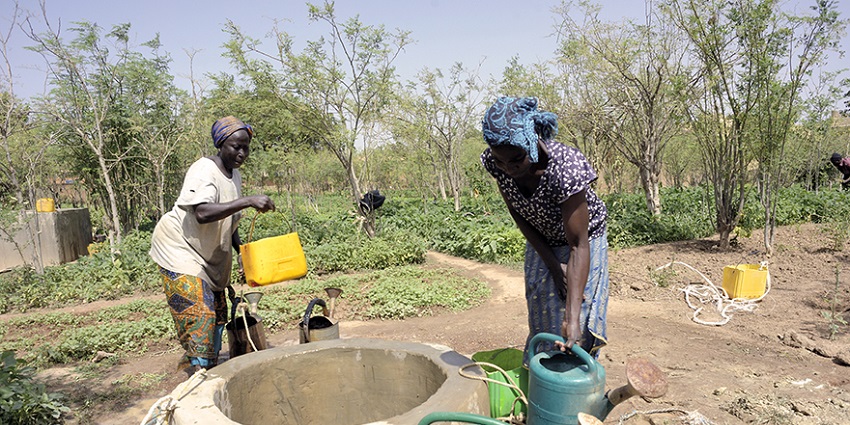
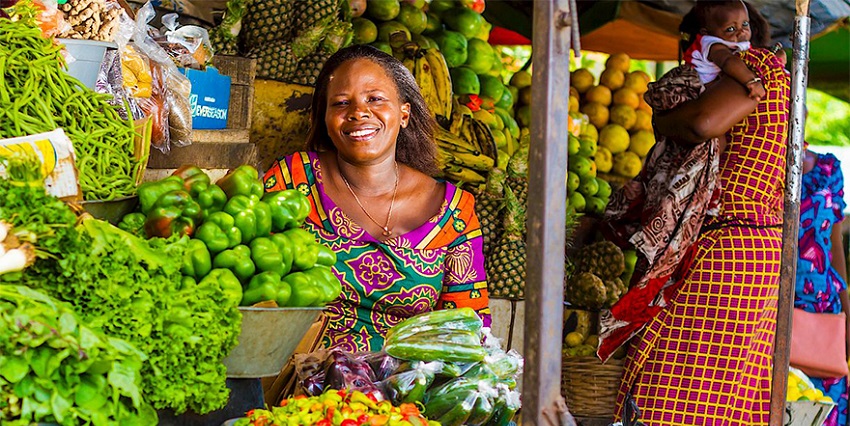
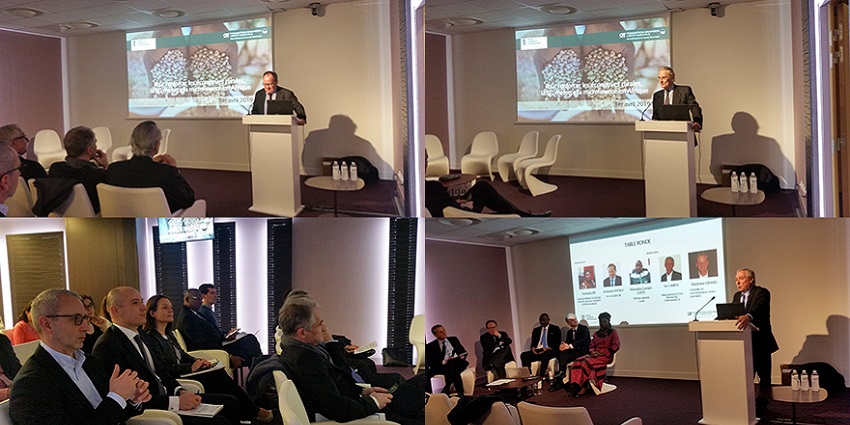
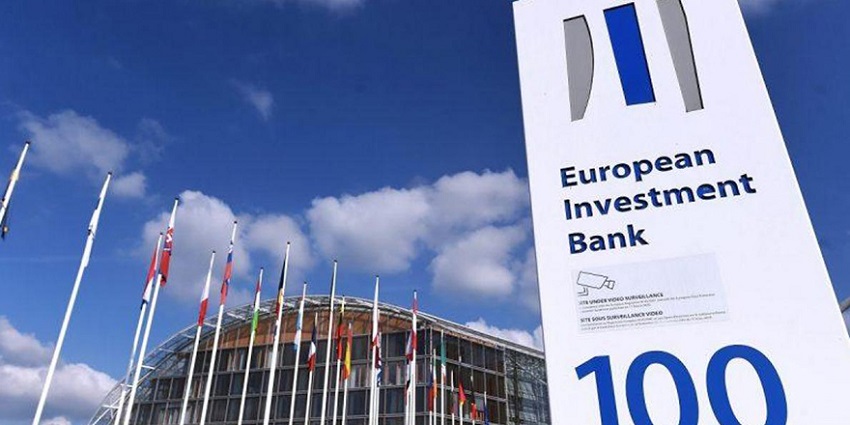
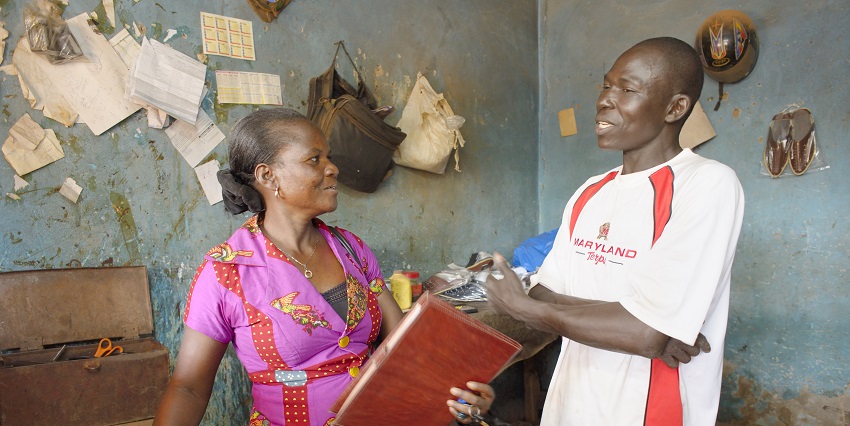
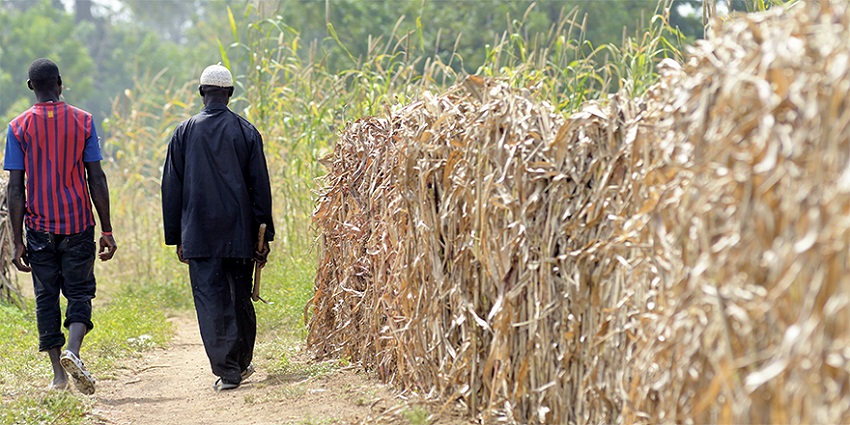
A TA programme to strengthen the impact of microfinance in West Africa

Actors committed to microfinance
With almost 12 years of experience in the microfinance sector and over €200 million in funding, the Grameen Crédit Agricole Foundation finances and supports with technical assistance microfinance institutions worldwide. This support aims at promoting sustainable and innovative microfinance services which, in turn, will have positive social and economic impacts for low-income populations and the development of small and micro enterprises.
With 37% of its investments in Sub-Saharan Africa, the continent is at the heart of the Foundation’s action and its mission to contribute to the fight against poverty. Alongside the European Investment Bank (EIB) and the Luxembourg Government, the Foundation will strengthen its support to microfinance institutions in West Africa, within the framework of a new technical assistance programme.
Both partners of the Foundation have strong experience in the development of microfinance: the EIB has already committed over € 1.3 billion for the sector since its first microfinance operations in 1992, a key objective of EIB support for private sector investments in Africa, and Luxembourg concentrates 61% of global assets under microfinance management.
Strengthening the impact of the Foundation in West Africa
After granting in 2018 to the Grameen Crédit Agricole Foundation a loan equivalent to €12 million euros in CFA francs, in order to support microfinance in West Africa, the EIB allocated, on behalf of the Government of Luxembourg, a grant of € 332,000 to provide technical support to five microfinance institutions supported by the Foundation.
This two-year programme will allow the Foundation to support Caurie (Senegal), Kafo Jiginew (Mali), Graine (Burkina Faso), ACEP Burkina Faso and ACEP Niger in order to facilitate their digital transformation, improve risk management or even strengthen the social performance management. Thanks to this partnership with the EIB and the Government of Luxembourg, the Foundation is increasing its presence in West Africa and strengthening its value proposition to its partners in the region. This will strengthen the impact of microfinance in rural and urban areas of West Africa, including in the Sahel States. Moreover, consolodating private sector access to finance will be key to bolster Africa’s resilience and recovery from the expected impact of the Corona virus.
The Foundation grants 7 new fundings in sub-Saharan Africa

During the first half of the year, the Grameen Crédit Agricole Foundation has granted seven new fundings in sub-Saharan Africa to historic partners.
In Benin, the RENACA microfinance institution received a loan in local currency equivalent to € 762,000 over a three-year period. RENACA is a mutual microfinance institution whose mission is to significantly strengthen the economic base of rural populations. To date, the institution has 27,000 active borrowers, 80% of whom live in rural areas and 59.5% of whom are women.
In Kenya, the Foundation granted a new loan in local currency equivalent to € 2 million to the microfinance institution Musoni. Musoni Kenya is a microfinance institution that leverages Information Communication Technology (ICT) heavily to manage its operations efficiently and to scale rapidly. To date, the institution has 44,000 active borrowers, 66.3% of whom are women and 63.3% of whom live in rural areas.
In Uganda, ENCOT received a new loan in local currency equivalent to € 296,000 over a three-year period. This loan was made within the framework of the African Facility, a programme developed by the Grameen Crédit Agricole Foundation in partnership with the French Development Agency to support small microfinance institutions in sub-Saharan Africa. ENCOT is an indigenous rural community development microcredit and rural-enterprise development NGO whose goal is to provide financial and enterprise development services. To date, the institution has 6,200 active borrowers, 56% of whom are women and 88.4% live in rural areas.
Similarly, in the Democratic Republic of Congo, the Foundation granted a loan equivalent to € 540,000 within the framework of the African Facility, to the microfinance institution Paidek, an institution whose role is to finance the development of small commercial or livestock-raising activities. To date, Paidek has 15,500 active borrowers, 51% of whom are women and 31.2% of whom live in rural clients.
In Zambia, the Foundation also provided a new loan in local currency equivalkent to € 300,000 over a three-year period to Agora Microfinance Zambia (AMZ), within the framework of the African Facility. AMZ is a microfinance institution which targets specifically people with low incomes through suitable financial products. To date, it has 37,100 active borrowers, 58% of whom are women and 85% of whom live in rural areas.
Finally, in Senegal, the Foundation has made two new investments. A first investment was made with the microfinance institution CAURIE in the form of a loan, for an amouint in local currency equivalent to € 1.14 million over a four-year period. Caurie Microfinance’s mission is to contribute to the economic and social improvement of poor microentrepreneurs. The institution now has 72,200 active borrowers, 99% of whom are women. 55% of Caurie’s customers live in rural areas. The second investment made by the Foundation in this country was made in the form of an equity investment to Laiterie du Berger for an amount equivalent to € 99,700. La Laiterie du Berger, of whom the Foundation has been a shareholder since 2010, is a social company that collects milk from Fulani herders, in the North of the country, and transforms it into yogurts and other dairy products that are sold under the brand Dolima.
With these new investments, the Foundation raises the amount of its commitments in Sub-Saharan Africa to nearly € 41 million, that is 41% of the total amount of the Foundation’s commitments as of end of August 2019.
The GCA Foundation and the EIB join forces to promote microfinance in Africa

On April 1, the Grameen Crédit Agricole Foundation and the European Investment Bank (EIB) organised, in Paris, a round table debate on the subjectf of the development of rural economies and the strengthening of microfinance in Africa by the EIB. The representatives of both institutions stated a common objective: the promotion of a more sustainable and inclusive economy.
Following the EIB’s grant to the Foundation of a EUR 12 million loan equivalent in CFA francs to support microfinance in West Africa, this round table was also an opportunity to discuss the challenges related to the development of rural areas in Africa. Several guests gathered to discuss rural microfinance, agriculture, gender and climate change.
For the Foundation, the acknowledgement of its expertise in microfinance
As Jérôme Brunel, Director of the Foundation and Secretary General of Crédit Agricole S.A., pointed out in his opening speech, the Foundation has lent more than four times its capital over the past ten years, i.e. €200 million in financing, in over 30 countries and has supported over 100 partners since 2008. At the end of 2018, the Foundation had an outstanding portfolio of €76 million and supported 75 partners in 35 countries. After excellent results in 2018, this new funding will allow the Foundation to extend its action in Africa in the field of microfinance and support to social entrepreneurship. “With this funding to the Grameen Crédit Agricole Foundation, the European Investment Bank confirms its commitment to financial inclusion in West Africa alongside a committed player that has just celebrated its 10th anniversary,” stated Ambroise Fayolle, EIB Vice-President.
Mamadou Lamine Gueye, Managing Director of Caurie Microfinance, a Senegalese microfinance institution partner of the Foundation and beneficiary of the EIB funding, and Soukeyna Ndiaye Bâ, Managing Director of the INAFI International Foundation and a Board member of the Foundation, for their part, spoke of the importance of intermediaries such as the Grameen Crédit Agricole Foundation, whose positioning enables small microfinance institutions to be funded, which otherwise would not be as they are not eligible for funding from large donors. Both agreed to recognize the role of the Foundation and other donors in the development of the African microfinance sector, hence providing opportunities for African youth.
Two institutions have already benefited from the loan granted by the EIB to the Foundation: Caurie Microfinance, whose mission is the social and economic empowerment of poor microentrepreneurs in Senegal, mainly women; and PAMF BF, which offers microloans to finance agricultural and economic activities such as market gardening or cereal production in Burkina Faso. These two institutions alone represent over 110,000 active borrowers, 79.87% of them women.
Africa remains a priority target for the Foundation
Sub-Saharan Africa accounts for around 30% of the Foundation’s funding. It focuses its action in favour of rural populations, with the objective of strengthening the resilience of the agricultural sector. “The Grameen Crédit Agricole Foundation is now present in a dozen African countries,” stated Jean-Marie Sander, President of the Foundation. For Eric Campos, Managing Director of the Foundation, “work on agriculture means to work on the future of Africa. We must free the development of products suited to the rural world: today, agriculture represents 60% of the workforce of the continent. Farmers represent only 3% of the banks’s clients!”
In line with the action undertaken by the Foundation, microfinance is a fundamental pillar for value creation in Africa. This is also what two of our speakers, Flora Helard and Mathilde Thonon, students at Sciences Po Paris and co-founders of In-Venture, found out during their one-year voyage accross West Africa and South-East Asia where they travelled to meet those who find financial solutions to the social and environmental problems of their community. In particular, they met with two MFIs partner of the Foundation in Benin: RENACA and ACFB. Their enthusiasm reflects the performance of a dynamic sector that attracts tomorrow’s young entrepreneurs.
The EIB grants a €12 million loan to the Grameen Crédit Agricole Foundation

The Grameen Crédit Agricole Foundation received a loan from the European Investment Bank (EIB) of €12M equivalent in CFA Francs to support the development of microfinance in Western Africa. This financing operation in local currency is a true recognition for the Foundation that will be able to increase its presence in Africa.
The EIB, an operator committed to microfinance
The EIB has a long experience in the development of microfinance. With more than €1.2 billion implicated since the first microfinance operations in 1992, the EIB supports microfinance institutions as well as other actors in this field who promote inclusive and responsible finance. As part of the Cotonou Agreement signed in 2000 between the European Union and the ACP countries (Africa, Caribbean, Pacific), the EIB launched an investment facility to promote the private sector and fight poverty. Within the framework of this program, a loan a loan of €12M equivalent in CFA Francs was granted to the Grameen Crédit Agricole Foundation.
The Foundation, an industry expert
Investor, financier, technical assistance coordinator and fund advisor, the Foundation has supported microfinance and social business institutions around the world for 10 years. Ten years later, more than 200 million euros in funding, a presence in thirty countries and more than 100 partners supported from the start. In 2018, € 73 million in outstandings were monitored by the Foundation and 75 partners were supported in 35 countries. After its good results in 2018, this new funding will allow the Foundation to expand its action in Africa around microfinance and support for social entrepreneurship.
With more than 30% of funding in sub-Saharan Africa, the Foundation is positioning itself as an actor committed to the fight against poverty in the continent. It directs its action towards rural populations to support financial inclusion and strengthen the resilience of the agricultural sector. This alliance between the EIB and the Foundation meets a common objective: to finance and promote a more sustainable and inclusive economy, in line with the Global Development Agenda by 2030. By providing this funding in CFA francs, the EIB allows the Foundation to continue supporting its partners in West Africa with loans in local currency.
Already promising projects
Two institutions will already benefit from this joint support: CAURIE MICROFINANCE, in Senegal, which comes to contribute in a sustainable way to the social and economic empowerment of poor micro-entrepreneurs, mainly women, PAM BF, in Burkina Faso which grants microcredits to finance agricultural and economic activities, such as market gardening or cereal production. These two institutions together have close to 100,000 active borrowers.
“With this funding, the European Investment Bank confirms its commitment to financial inclusion in West Africa alongside a committed player who has just celebrated its 10 years of existence,” said Ambroise Fayolle , Vice-President of the EIB. “The ability to finance this operation in local currency is a key element in order to be able to reach the most vulnerable populations without putting the exchange risk on microfinance institutions. We particularly support the Grameen Crédit Agricole Foundation on its approach in favor of “employment of women. These are the values carried by Europe that we support today.”
“The EIB loan allows us to leverage the action of the Foundation which concentrates more than a third of its funding in sub-Saharan Africa and is present in a dozen African countries. Africa will continue to be a priority target for the Foundation which will concentrate more than 30% of its funding in the continent by 2022. Thank you to the EIB for being part of the human and entrepreneurial adventure that Crédit Agricole and Professor Yunus started 10 years ago. ” , said Jean-Marie Sander, President of the Grameen Crédit Agricole Foundation.
In 2018, the Foundation consolidated its presence in West Africa with 8 new loans

In the course of the previous year, the Grameen Crédit Agricole Foundation strengthened its presence in West Africa with 8 new loans, 3 of which to new partners.
In Mali, the Foundation financed Kafo Jiginew, a cooperative network of savings and loans banks that provides retail financial services (savings, loans, microinsurance, transfer of funds and other services) to the largest number of persons in Mali to improve their living conditions. The institution has 48,000 working clients at this time, 92% of whom live in rural areas. The Foundation granted a loan in local currency equivalent to €3 million over five years to this institution.
In Benin, the Foundation granted a loan in local currency equivalent to €1.4 million to a new partner, PEBCo Bethesda which is geared to improving the living conditions of people by providing quality financial and non-financial services. The institution provides loans to groups and individuals. It has ca. 95,000 active borrowers, 64% of whom are women and 33% live in rural areas.
In Togo, the Foundation also financed a new partner, Assilassimé, with a loan in CFA francs equivalent to €500,000. Assilassimé is a programme created in 2012 by Entrepreneurs du Monde for marginalized people. The institution provides them financial (microcredit) and non-financial (training, individualized support, social media optimization) services. It has nearly 30,000 clients at this time, some 97% of whom are women.
In Burkina Faso, the Foundation moreover made three investments in existing partners in 2018, bringing the total amount of its commitments in that country to more than €4 million, or 13.8% of its commitments in Sub-Saharan Africa at the end of December 2018. More specifically, ACFIME received a loan in CFA francs equivalent to €305,000 over a period of three years. This is a microfinancial institution that helps to bridge the gap not covered by large MFIs which operate across the country, with loans granted by ACFIME having a very strong potential social impact. It has 18,600 clients at this time, 90% of whom are women. For its part, PAMF-BF received a loan in local currency equivalent to €1 million over a period of three years. The core activity of the institution, which has some 28,400 clients, is to grant loans in Burkina Faso so as to help meet better the financial needs of low-income segments of the population with reinforced protection or their members or users. Finally, ACEP Burkina received a loan in local currency equivalent to €1.5 million over a period of three years. Acep is a microfinance institution specialized in the financing of microenterprises and very small existing companies in urban centres and their inner suburbs. The credits granted are intended essentially to finance the working capital and investment needs. The institution has 11,000 active borrowers at this time.
Finally, in Senegal, the Foundation granted a loan in local currency equivalent to €762,000 to Caurie Microfinance, a socially responsible and financially viable MFI geared to making a lasting contribution to the economic and social promotion of poor microentrepreneurs, mainly women. Caurie has 71,000 clients at this time, 98% of whom are women. The Foundation has also granted a €100,000 loan to Sénégalaise des Filières Alimentaires in the form of a shareholders’ current account. SFA is a social business which is developing an inclusive value chain from the production and marketing of rice, in which the Foundation has had a shareholding stake since 2013.
To develop rural economies, the EIB is strengthening microfinance in Africa

On 1st of April, from 9 AM to 11 AM, the Grameen Credit Agricole Foundation and the European Investment Bank (EIB) are organising a conference in Paris on the theme of developing rural economies and strengthening microfinance in Africa by the EIB.
Jérôme Brunel, Secretary General of Crédit Agricole SA, Director of the Grameen Crédit Agricole Foundation and Ambroise Fayolle, Vice-President of the EIB, will make opening remarks. Around the table, Eric Campos, Managing Director of the Foundation and CSR Director of Crédit Agricole SA, Soukeyna Ndiaye Bâ, General Director of the INAFI International Foundation and Director of the Foundation, and Mamadou Lamine Gueye, Managing Director of Caurie, a Senegalese microfinance institution supported by the Foundation. Jean-Marie Sander, President of the Grameen Crédit Agricole Foundation, will deliver a closing address.
The main topics discussed will be: The development of rural areas in Africa, an absolute necessity? Rural microfinance in Africa: what are the challenges? What are the opportunities? Banks and rural microfinance: the impact of alliancesMicrofinance, gender and climate change: destinies are linked.
To attend, please contact: carolina.herrera@credit-agricole-sa.fr
___________________________________________________________
Created in 2008, under the joint impetus of the directors of Crédit Agricole S.A. and Professor Yunus, winner of the 2006 Nobel Peace Prize and founder of the Grameen Bank, the Grameen Crédit Agricole SA Foundation is a multi-business operator that contributes to the fight against poverty through financial inclusion and entrepreneurship with a social impact. As an investor, lender, technical assistance coordinator and fund advisor, the Foundation supports microfinance institutions and social enterprises in nearly 40 countries.
